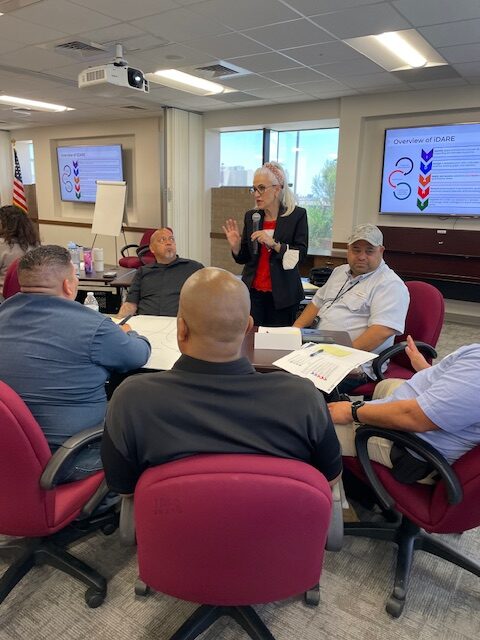The Transformative Role of Education in Encouraging Inclusive & Just Leaders
By Fatima Saeed, WI-HER Senior Gender-Based Violence Technical Advisor

The International Day of Education serves as a reminder of the lifelong role education plays in building a just, peaceful, and inclusive world. In 2024, the world continues to face multi-faceted conflicts and crises, including climate change, hunger, and human rights violations.
These challenges highlight the critical need for building leadership that is diverse, inclusive, and committed to justice and equality for all. WI-HER’s work on leadership development, coaching, and mentorship training programs emphasizes the importance of learning as a lifelong journey for compassionate and effective leaders, and our work utilizes adult learning techniques focused on interactive methods and discussions.
Our leadership development programs, led by WI-HER Founder and President Dr. Taroub Faramand, include three critical elements that enable individuals to explore their leadership potential:
- Our customized, evidence-based, and participatory training programs focus on optimizing the capacity of emerging leaders on how to identify, embrace, and harness their unique leadership styles to build teams that can deliver on organizational goals.
- We foster emotional intelligence; as a leader, emotional intelligence means handling interpersonal relationships with accountability and self-awareness.
- Emotional intelligence is interconnected with the third most important element of our leadership development training programs, which is promoting diversity, equity, inclusion, and accessibility.
These three elements form the bedrock of our leadership development training programs and inform how we build technical and operational modules such as change management, critical thinking, negotiation skills, and strategic planning.
Our leadership development programs have helped our partner organizations build teams that are more attuned to each other’s working styles and aid in the creation of psychologically and physically safe workplaces for all employees.
As we continue to work with our partners on building inclusive and equitable workplace environments and educate leaders to stay true to these values throughout their leadership journey, we hope that our model for inclusive leadership is adopted more widely and manifests a more peaceful and just world in 2024.